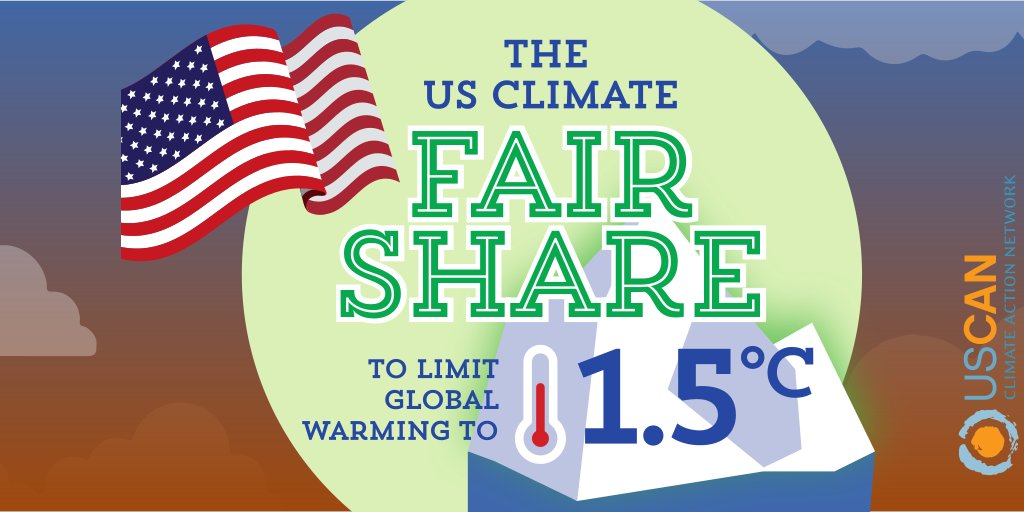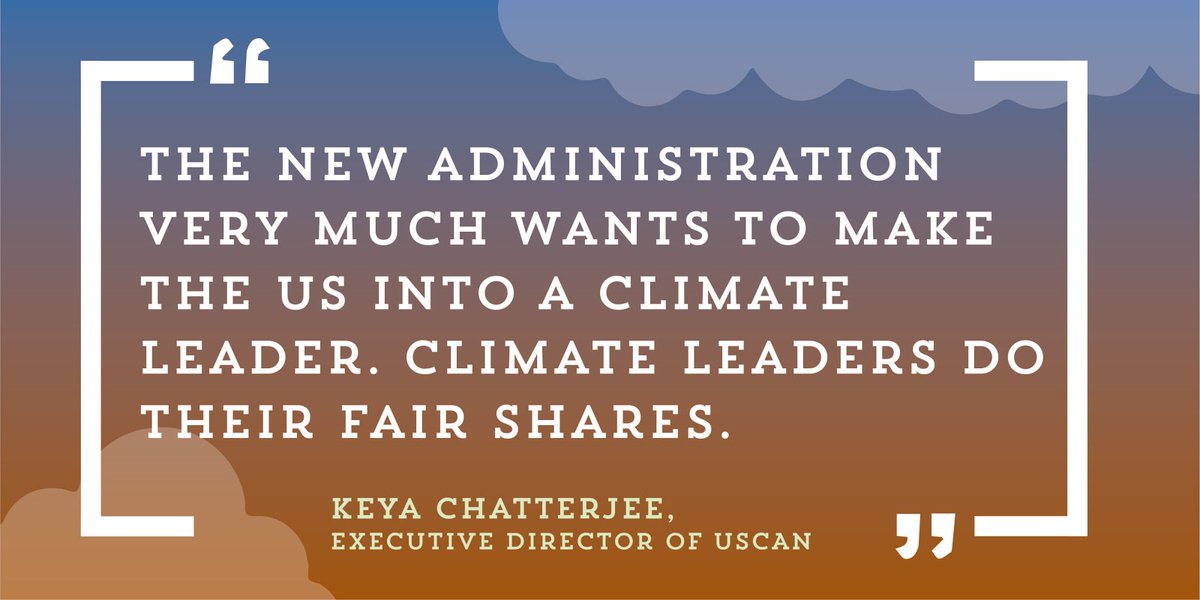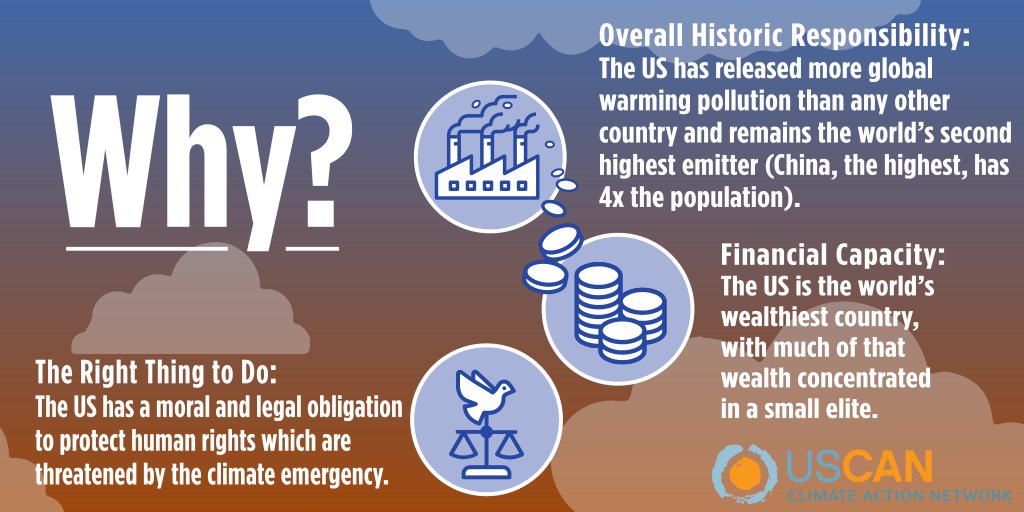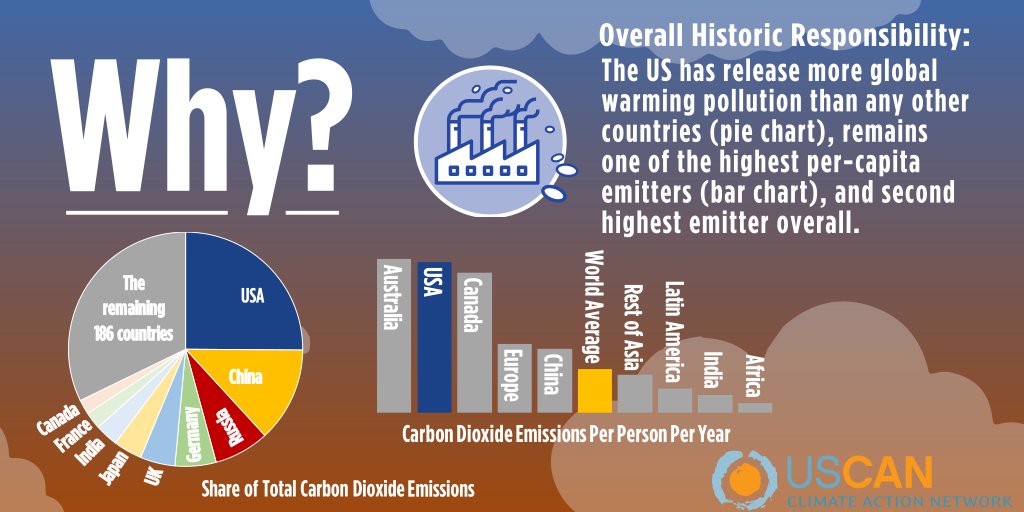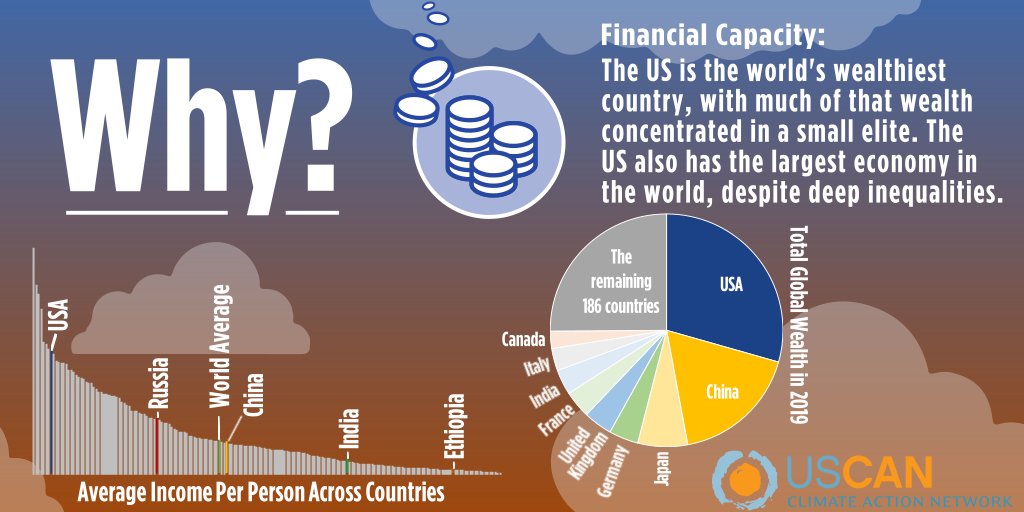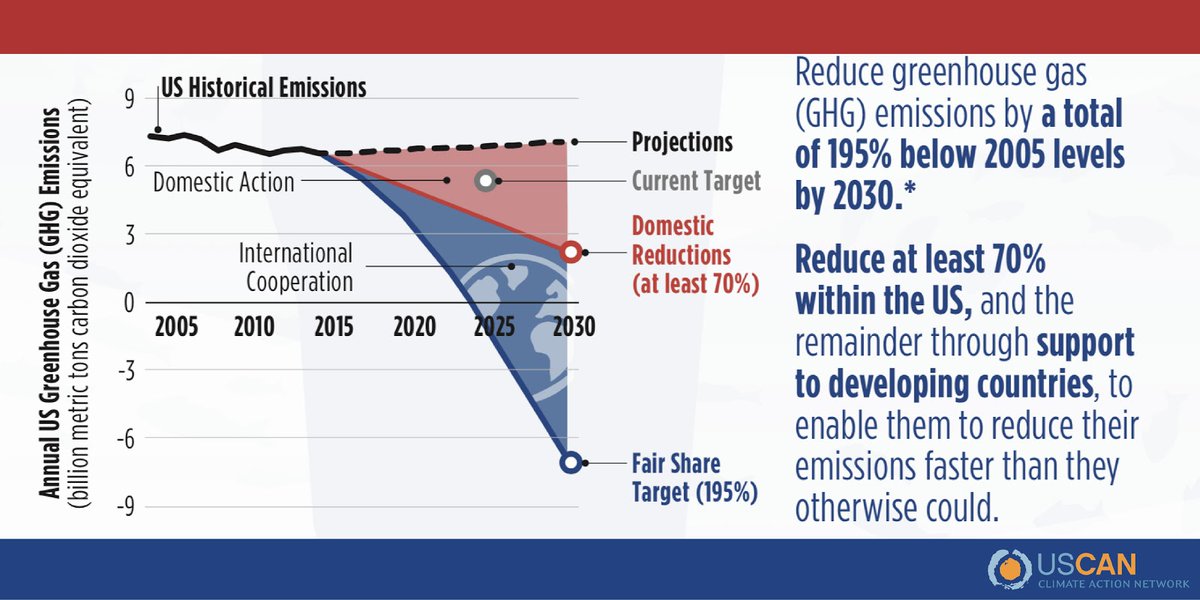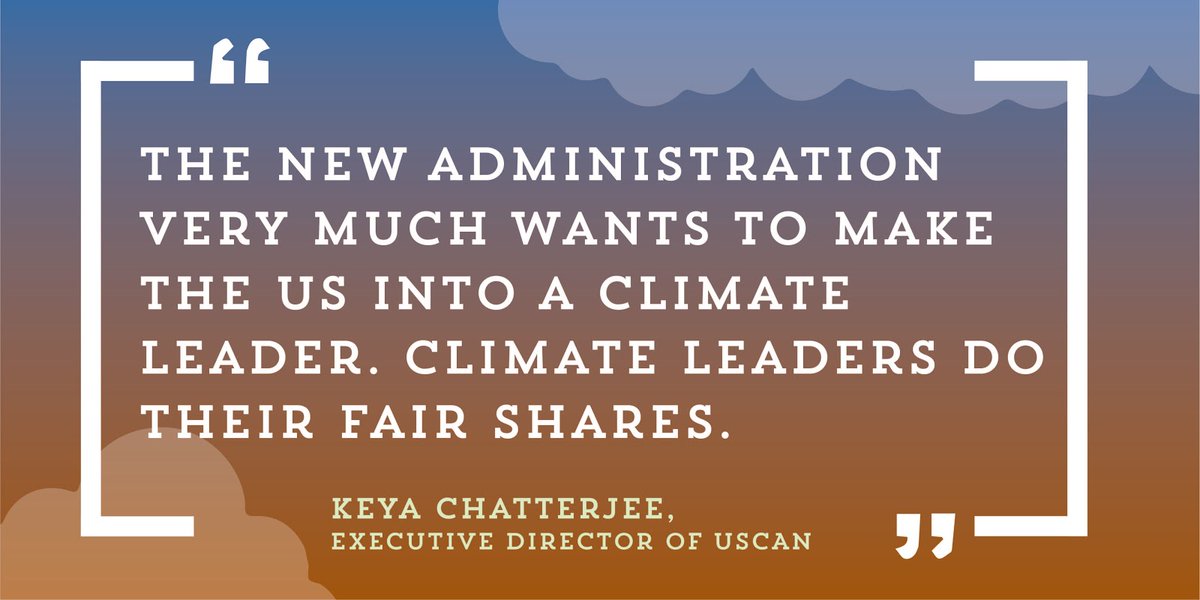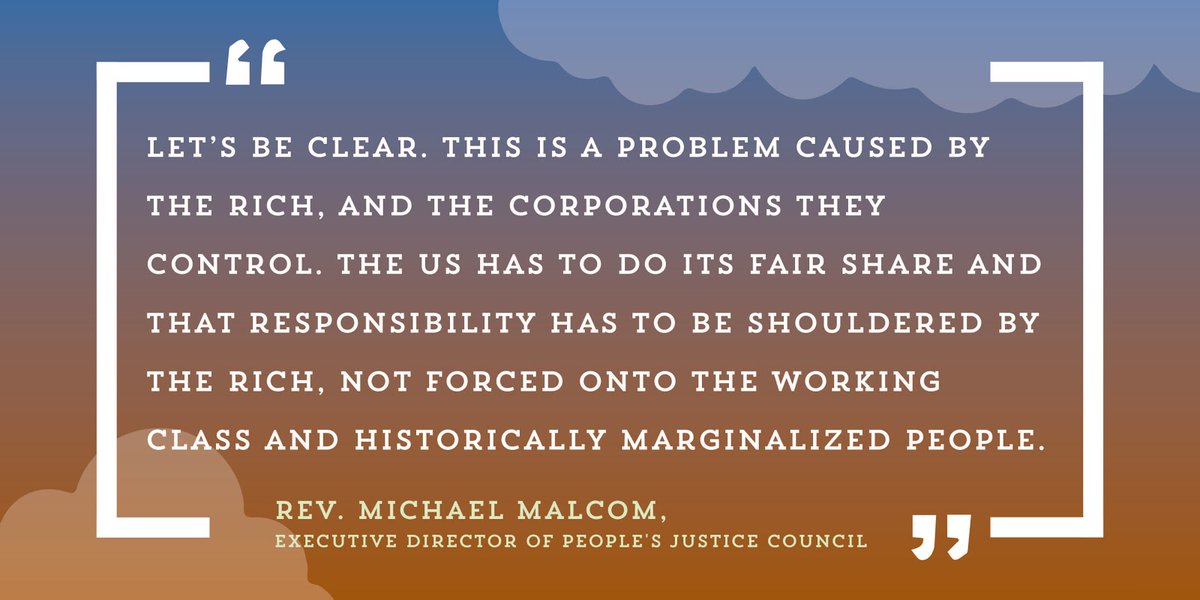THREAD: Before people start complaining it's unrealistic to expect the US to reduce emissions 70% by 2030 + offer international aid, let me point out that what you are really saying is that it's unrealistic to limit warming to 1.5°C. 1/n #ClimateFairShare https://www.newyorker.com/news/annals-of-a-warming-planet/the-climate-debt-the-us-owes-the-world
The rest of the world is quite aware of the size of the U.S. fair share to the Paris Agreement, and it is unrealistic to expect that other countries, especially poor developing countries, will make up for any shortfall in the U.S. contribution. 2/n
The IPCC 1.5 found global emissions need to reduce 45% from 2010 levels by 2030. When one tags on two years of delay + accounts for the national baseline games the U.S. like to play, the U.S. would need to cut emissions by 50-55% from 2005 levels to be AVERAGE reducers. 3/n
But here's the thing: because the U.S. is by FAR the biggest carbon polluter to date, the U.S. needs to reduce a LOT more than "average" to do it's fair share in cleaning up the mess. And it's bears repeating: other countries can do the math. 4/n
So, what does the math say? By 2030 the U.S. needs to cut emissions by 195%(!!!) This huge number reflects the reality that the U.S. has essentially already exhausted our share of the carbon budget + we are by far the most wealthy nation. 5/n
How do we reduce emissions 195%? USCAN is proposing that we reduce emissions domestically 70% by 2030 and make up the difference by supporting emissions reductions overseas. 6/n
Why 70% by 2030? One reason is that 70% is close to the reductions doable through a major mobilization that still delivers prosperity for Americans, i.e. net household savings + millions of new jobs. See the ReWire analysis here: https://www.rewiringamerica.org/jobs-report 7/n
If the math is hard to swallow, try getting other countries to swallow the proposition that they should do more than their fair share to order to make up for the U.S. doing less than it's fair share to limit warming to 1.5°C. 8/n
Take China for instance. That country has 4x the number of residents compared to the U.S., yet China has only emitted half as much carbon pollution. China has committed to net zero by 2060. Does a U.S. pledge of net zero by 2050 balance out to limit warming to 1.5°C? No. 9/n
The IPCC calls for a global average of net zero by 2050. If the richest and worst polluter pledges net zero only by 2050, it is realistic to expect all the poor and developing countries will, too, without help from the U.S.? Nope. 10/n

 Read on Twitter
Read on Twitter